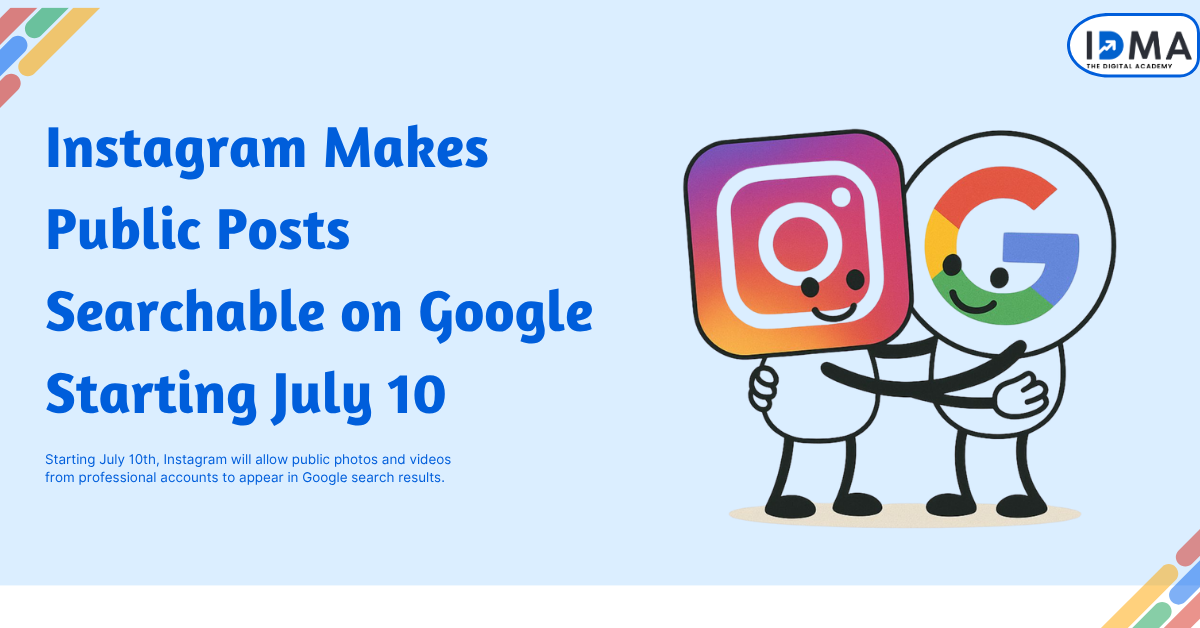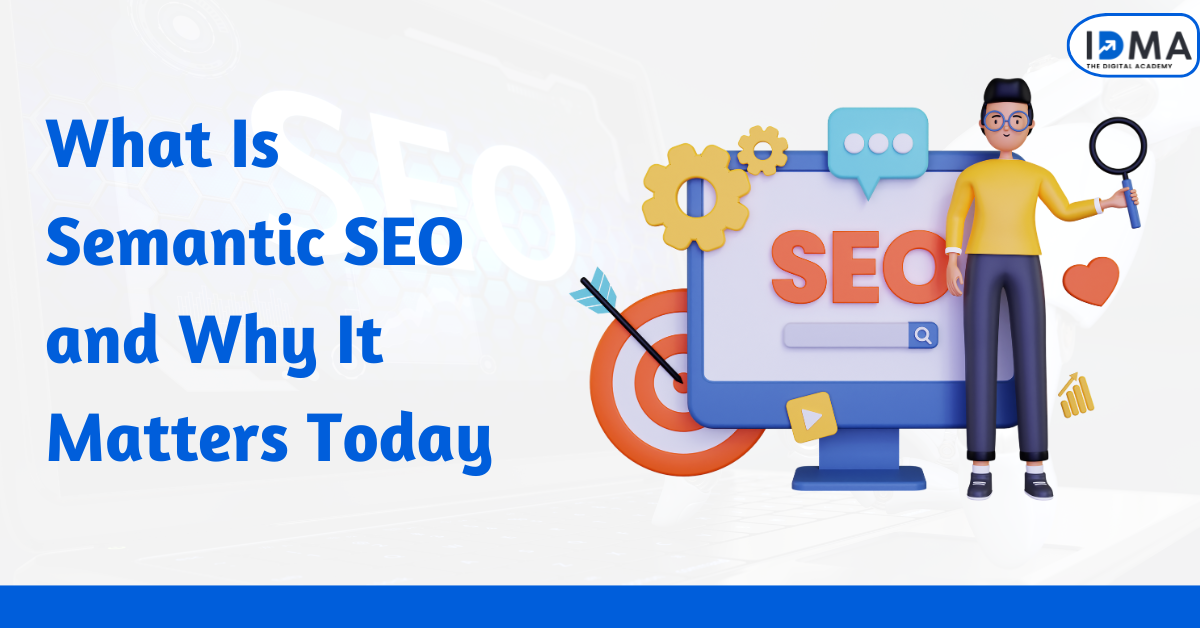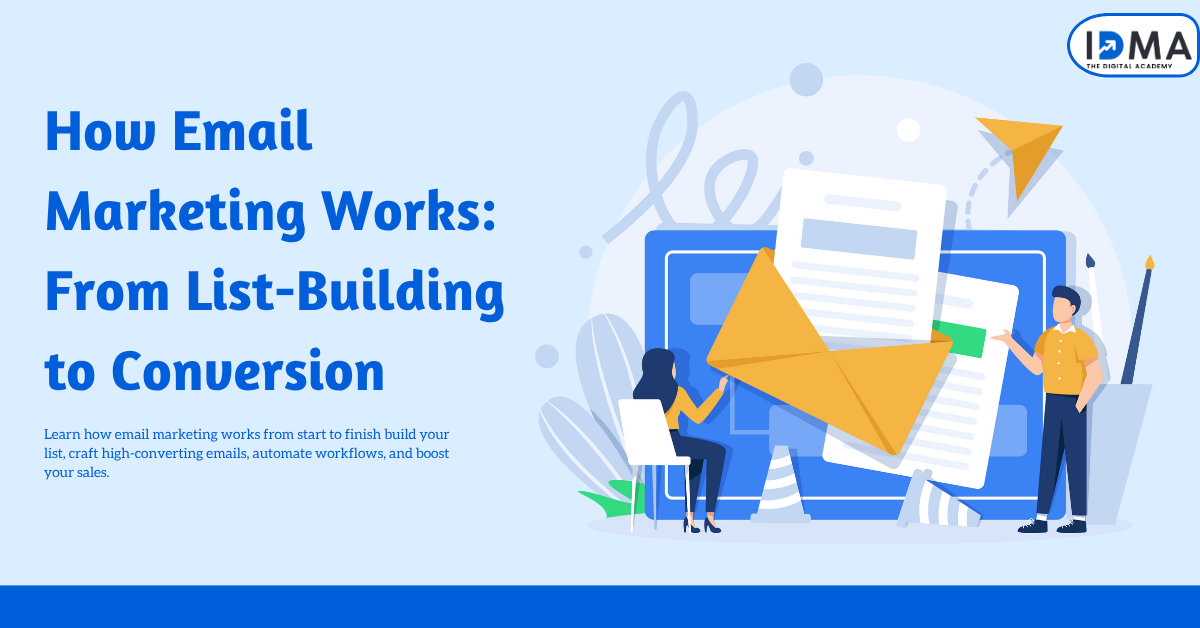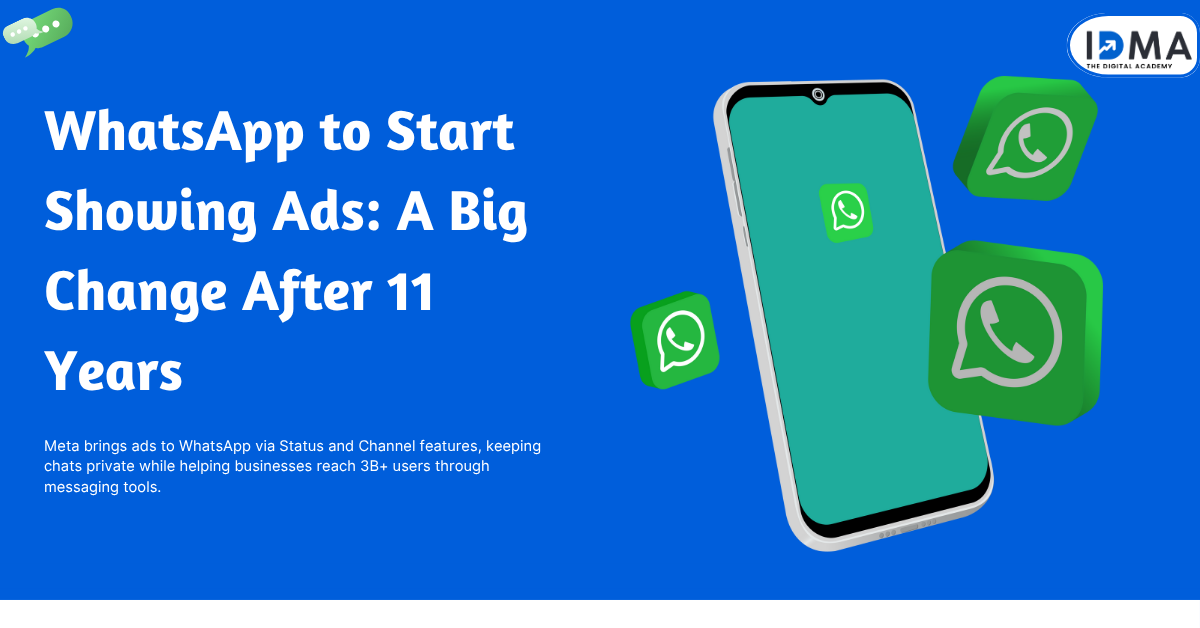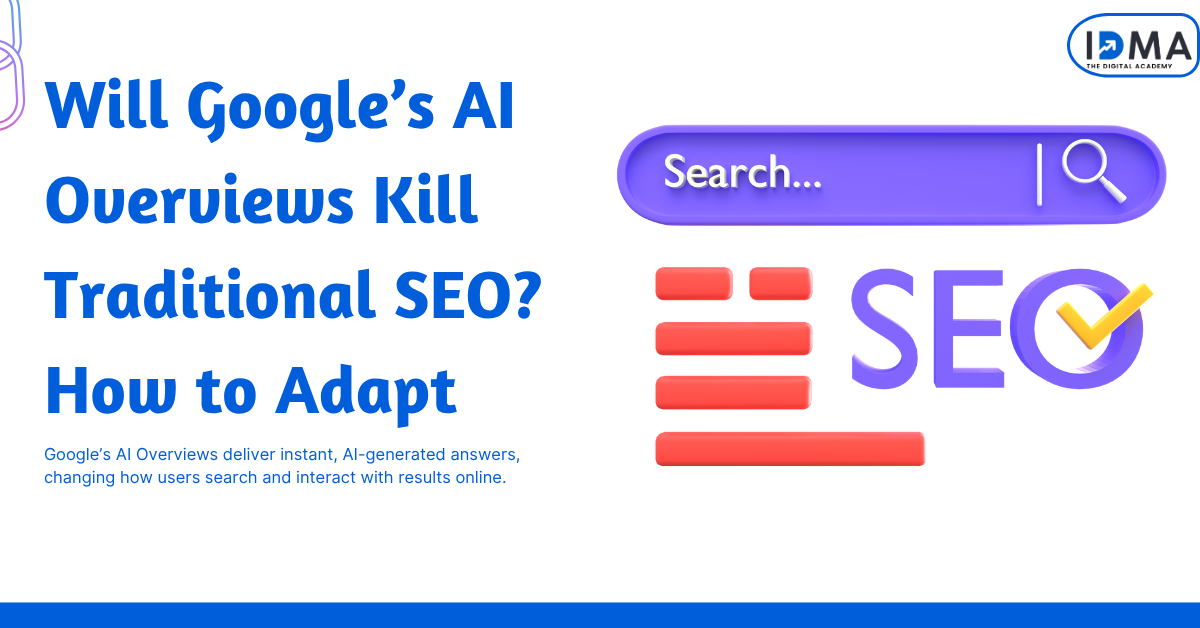As businesses strive to thrive in a rapidly evolving market, understanding the difference between digital marketing vs marketing is crucial. This article will break down these two approaches, highlighting their unique features and benefits.
The marketing industry is dynamic and diverse, as anyone who knows it can attest to. There may be a difference between strategies that worked in the past and those that work today. As technology evolves at an unprecedented rate, businesses cannot afford to remain stagnant. Staying relevant requires a variety of marketing techniques.
To succeed in a competitive market, you must understand marketing strategies comprehensively if you own a business. Here’s where the digital marketing versus traditional marketing comparison comes in. The Indian Digital Marketing Academy (IDMA) will explain the key differences and how it can help you navigate both.
What is Digital Marketing?
A digital marketing strategy involves promoting products or services via digital channels such as websites, social media, email, search engines, and mobile apps. It’s like having a toolbox full of digital tools to reach your audience where they spend most of their time—online.
When browsing a website, you may see an ad for a product you are considering, then receive an email offering a special discount. Perhaps a YouTube video review is posted on YouTube, as well as a post on social media. Regardless of which digital platform you use, this integrated approach keeps the product in your view.
Because of this, IDMA recommends combining digital marketing with other marketing techniques.
What is Marketing?
Marketing involves promoting products or services through offline channels such as television, radio, newspapers, magazines, and billboards. The message is visible to everyone passing by because it’s like having a billboard in the heart of the city.
Take a moment to envision yourself seeing a vibrant billboard for a new restaurant on the way to work, hearing an
Digital Marketing vs Marketing: What’s the Difference?
There is no doubt that Digital Marketing and Marketing are both essential, but they cater to different aspects of a comprehensive marketing plan. The following is a detailed comparison:
Digital Marketing:
1. Uses Digital Channels:
Digital marketing utilizes online platforms such as social media, websites, email, and search engines.
This approach ensures your brand reaches customers where they spend a significant portion of their time—online.
2. Interactive and Engaging:
Allows for two-way interaction with the audience through comments, likes, shares, and direct messages.
Enables real-time feedback and engagement, enhancing customer relationships.
3. Targeted and Personalized:
Uses data and analytics to target specific demographics, interests, and behaviors.
Provides personalized content and ads, increasing the relevance and effectiveness of marketing efforts.
4. Measurable Results:
Offers detailed analytics and metrics, such as click-through rates, conversion rates, and ROI.
Allows for continuous optimization based on performance data.
5. Cost-Effective:
Often more affordable than traditional marketing, especially for small businesses and startups.
Allows for precise budget allocation and spending control.
Marketing:
Uses Offline Channels:
Traditional marketing employs TV, radio, print media, and billboards.
This approach can reach a wide audience, especially those who may not be as active online.
One-Way Communication:
Primarily delivers messages to the audience without direct interaction or immediate feedback.
Relies on broad messaging to capture attention.
Broad Reach:
Effective for reaching large and diverse audiences, including those who may not use digital platforms.
Ideal for brand awareness and large-scale promotions.
Challenging to Measure:
Measuring the exact impact and ROI can be difficult.
Relies on estimations and indirect indicators such as increased foot traffic or sales spikes.
Higher Costs:
Can be more expensive due to production and placement costs for TV ads, billboards, and print media.
Often requires a larger budget for significant reach and frequency.
Digital Marketing:
Adapts to Changing Trends
Digital marketing can quickly adapt to new trends, technologies, and consumer behaviors.
Provides flexibility to pivot strategies in response to market changes.
Traditional Marketing:
Methods that have been established for a long time
Traditional marketing relies on tried-and-true methods that have proven effective over decades.
Beneficial for reaching audiences less engaged with digital platforms.
Digital Marketing:
Improved customer insights
Leverages data analytics to gain deep insights into customer behavior and preferences.
Allows for precise targeting and personalization.
Traditional Marketing:
Less Data-Driven
Relies more on general market research and broad audience segments.
Provides less granular insights into customer behavior.
In the ever-evolving landscape of marketing, selecting between digital and traditional strategies is pivotal. We shall examine their fundamental disparities.
| Digital Marketing | Traditional Marketing: |
| Adapts to Changing Trends | Methods that have been established for a long time |
| Improved customer insights | Less Data-Driven |
| Interactive and Engaging | One-Way Communication |
| Cost-Effective | Higher Costs |
| Targeted and Personalized | Broad Reach |
| Measurable Results | Challenging to Measure |
| Real-Time Feedback | Delayed Feedback |
| Global Reach | Local/National Reach |
Comparing digital and traditional marketing helps businesses understand which approach suits their goals best. Each has its strengths, from digital’s adaptability to traditional’s established methods.
Wrapping Up
Both digital marketing and traditional marketing have their strengths and play crucial roles in a comprehensive marketing strategy. At IDMA, we help businesses integrate these approaches to craft effective strategies that deliver results.
If you are running a business or managing a marketing department, you can leverage both digital and traditional marketing to reach your audience effectively. We are just a call away if you need more information or help strategizing. Feel free to reach out; we can surely develop some helpful solutions.
At IDMA, our unwavering dedication lies in providing comprehensive solutions for both digital and traditional marketing challenges. Regardless of the size of your company, whether a small-scale enterprise or a large corporation, you can now leverage the advantages of our cutting-edge marketing strategies.
Get in touch with us and unlock the next level of growth for your brand. Our team of experts is ready to help you achieve remarkable results in both digital and traditional marketing landscapes.


